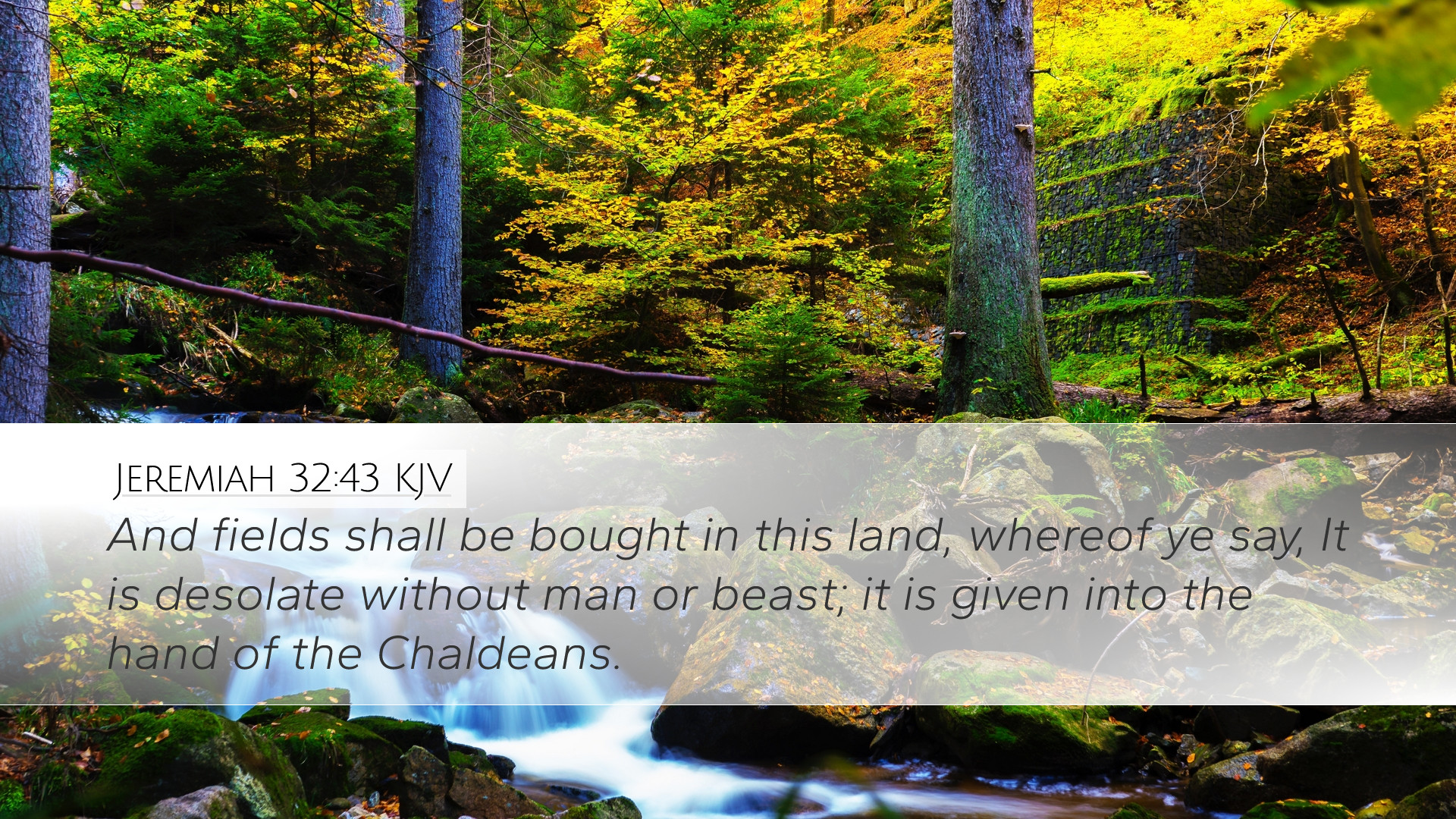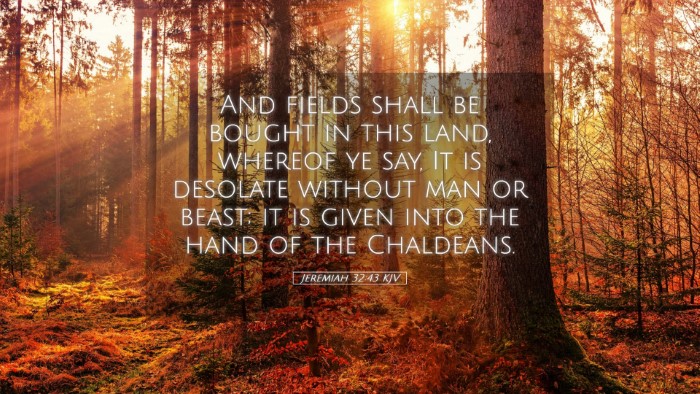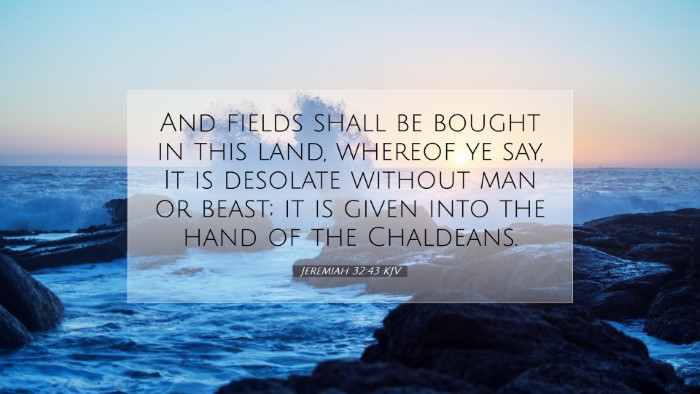Bible Commentary on Jeremiah 32:43
Jeremiah 32:43 reads: "And fields shall be bought in this land, whereof ye say, It is desolate without man or beast; it is given into the hand of the Chaldeans."
This verse is part of a larger promise concerning the future restoration of Israel. The context of this passage is significant as it emphasizes God’s commitment to His people despite their present desolation and exile.
Contextual Analysis
In the backdrop of Jeremiah's prophetic message, Israel had experienced severe trials, including siege, destruction, and captivity. The land was desolate, and the hope for restoration seemed dim. However, God reassures His people through this proclamation.
Interpretative Insights
Matthew Henry notes that this passage is a declaration of hope. Despite the Chaldeans' takeover, God promises that fields will be bought again, indicating a restoration of normal life and economic activity. This act of buying land symbolizes faith in God's promises, as it was a tangible sign of the anticipated return of the exiles.
Albert Barnes adds another layer by emphasizing the prophetic dimensions of this restoration. He interprets the purchasing of land as a sign of God’s faithfulness to preserve a remnant, and that even in the darkest times, His covenant with Israel remains intact. This serves as a spiritual encouragement for believers who face adversity.
Adam Clarke, on the other hand, explains the significance of fields being bought in a land deemed desolate. He posits that this act showcases the eventual return of not just the people, but also the blessings of God upon the land. The promise of purchasing fields reinforces the idea of faith sustaining hope amidst dire circumstances.
Theological Implications
Theologically, this verse can be viewed as a microcosm of God's work throughout history—the transition from judgment to mercy. It embodies the redemptive arc prevalent throughout scripture.
- Promise of Restoration: The promise made by God to Israel reflects His unwavering faithfulness. Even when circumstances indicate abandonment, God's plans endure.
- Assurance of Future Hope: For pastors and theologians, this verse serves as an assurance that hope is never lost, and God’s restoration is always on the horizon.
- Covenantal Faithfulness: The act of land acquisition symbolizes covenantal renewal. God's promises are fulfilled and manifest in physical and spiritual realms.
Practical Applications
This passage holds significant application for contemporary believers:
- Faith in Despair: As Jeremiah's words resonate amid desolation, believers today are encouraged to maintain faith during times of personal and communal despair.
- Investment in God's Promises: Just as the people were prompted to buy land, believers are called to invest in their faith communities, trusting in God's promises for growth and renewal.
- Looking for Restoration: The assured restoration serves as a reminder to remain hopeful for renewal in various facets of life—spiritual, familial, and societal.
Concluding Thoughts
Jeremiah 32:43 is not merely a historical account but a profound assurance of God’s covenantal faithfulness.
Through the insights of Henry, Barnes, and Clarke, we see a triad of hope, promise, and restoration that transcends time.
In desolation, God speaks of restoration, making a powerful statement for anyone who might feel abandoned or hopeless: that He will fulfill His promises and renew what is broken.


